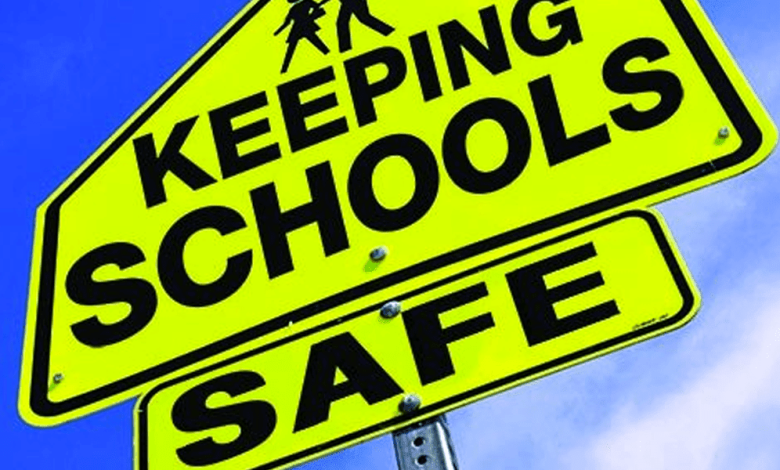Ohio Bill Allows For Indefinite School Expulsions For Threats And Hitlists

A bill allowing indefinite expulsion from schools for threatening behavior, including writing a hitlist or bringing a gun to class, passed late December in the Ohio Statehouse and was sent to the desk of Governor Mike DeWine, who signed it into law on January 8. Previous Ohio law granted public schools the ability to expel students facing behavioral issues for up to 80 days and up to 180 days or a full school year for bringing weapons to school, making bomb threats, or causing serious physical injury to another person, with permanent expulsion reserved only for students 16 years of age and older who were convicted in court of a serious criminal offense.
Ohio House Bill 206, sponsored by Representatives Gary Click and Monica Robb Blasdel, enables superintendents to indefinitely expel students who pose health and safety threats to other students and school faculty while requiring clear instructions for readmission. Aside from bringing firearms and knives to school, making bomb threats and causing serious injury to others, students can be subject to the new law for creating hitlists or threatening manifestos and sharing menacing posts on social media.
“This bill will put control back in the hands of parents, local school administrators and mental health professionals when dealing with the most difficult and stressful situations they encounter,” Blasdel stated.
HB 206 grants school superintendents the authority to extend an expulsion for 90 days at a time following the original 180 days without any limit on the number of extensions that can be applied. Clear reinstatement policies require psychological evaluation by a qualified psychiatrist agreed upon by the superintendent and the student’s parent or guardian. If not contracted or employed by the district, the cost of such an assessment will be referred to the student’s health insurance, however, any additional cost not covered by insurance will be paid for by the district.
“Mental health is an issue and there’s no time like the present to take care of it … So many times when there’s a tragedy, what’s the first question people ask? They say ‘Why didn’t you see the warning signs? Why didn’t you do something?’ Reality is that we’re not always permitted to do something,” said Click.
It is at this point that the superintendent, along with a “multidisciplinary team,” will decide while considering the psychological assessment whether the student has demonstrated “sufficient rehabilitation” and should be reinstated. In addition, HB 206 requires the superintendent to produce an alternative list of educational options for the student in question.
Opponents of the bill include the nonprofit group The Juvenile Justice Coalition, who claim that “exclusionary” discipline results in worsening misbehavior and educational setbacks, an increased dropout rate and a greater risk of involvement with the juvenile justice system. Meanwhile, the American Civil Liberties Union (ACLU) of Ohio was more worried about legislation granting too much power to the superintendent than the safety of the student body and faculty.
Another opponent of the bill, Ryan Davis, an education attorney in Dayton, played the race card by complaining it could disproportionately affect certain racial and socioeconomic groups.
“In Ohio, exclusionary disciplinary practices in our schools are already disproportionally impacting black, low-income and disabled students … The Children’s Defense Fund’s 2024 State of School Discipline in Ohio found that black female students are six times more likely than white female students to be suspended or expelled, and the trends are similarly staggering for black male students, disabled students and low-income students,” Davis stated in written testimony.
Why is it that people like Ryan Davis always raise this concern out of order? Disciplinary actions don’t happen in a vacuum. They are typically in response to an external action. They never state that members of certain communities are perhaps so many times more likely to violate the law or act out violently or inappropriately, just that the disciplinary actions for their behavior are somehow disproportionate. This breed of morally corrupt obfuscation is a plague on society and should offend even the most moderately intelligent person out there.
Click responded to detractors by expressing his intent to balance the power and prevent any manner of discrimination, inviting opponents to suggest language specific to their concerns, which he would include in the bill in an attempt to demonstrate inclusivity and bring all sides on board, but did not receive any response.
“We’ve been as responsive as we can and if they want to participate, they have to take the initiative to say here is what would take care of these issues and keep students safe, and they failed to do that … The goal is not extra suspensions or longer suspensions, the goal is safety. … We don’t want any students unfairly targeted or discriminated against in our schools, and if they have any solutions or additions in the future, my doors are open,” according to Click.
It comes as no surprise that those who are likely on the front lines of making sure teachers are not armed and who generally support the leftist disarmament plan are willing to stand by and do nothing when it comes to the source of the problem, which is addressing mental health and criminal behavior. I do not believe for a second that opponents of such a bill care for school safety, and their reaction to HB 206 validates the hypothesis. Their true agenda is power through pandering, and any group that chooses to write off poor behavior as disenfranchisement is a perfect target for their lechery.
HB 206 is a step forward in protecting students and faculty, however, I would suggest that actions to evaluate and treat students begin at the moment of expulsion, not during the reinstatement process. Exclusion never feels like a positive action when used in a disciplinary manner. The stigma can be easily overcome by using every moment and resource during the time to rehabilitate rather than punish. If that does not work, we must act responsibly by separating and monitoring bad actors to protect our communities, particularly those who are often most vulnerable, our children.
Read the full article here






